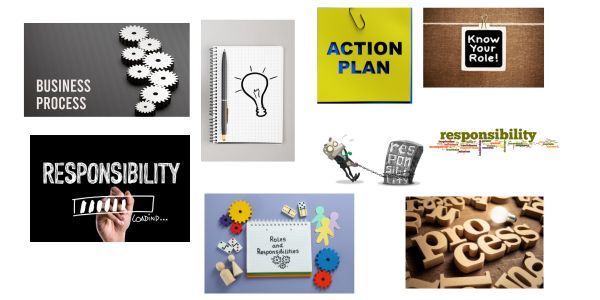How to Become a Great Maintenance Manager
5 Ways to Become Great in a World of Maintenance Mediocrity
Maintenance managers play a critical role in ensuring the smooth operation of machinery, equipment, and facilities in various industries, from manufacturing to healthcare. They oversee a team of maintenance technicians and engineers responsible for performing preventive and corrective maintenance tasks, ensuring compliance with safety and environmental regulations, and managing maintenance budgets and schedules. To become a great maintenance manager, one needs to possess a combination of technical, leadership, and communication skills. In this blog post, we'll discuss some tips on how to become a great maintenance manager.
1.-Develop Technical Expertise in Your Organization
One of the primary responsibilities of a maintenance manager is to oversee the team of maintenance technicians and ensure they have the skills to effectively troubleshoot and maintain the assets. To do this effectively, the manager must identify the skills required and assess the current competency of the team against those skills. To facilitate that, the manager needs to stay current with the latest technology, tools, and techniques in the field of maintenance.
You can achieve this by attending industry conferences, seminars, and workshops, reading technical journals, and pursuing continuing education and certification programs. This will not only enhance your technical expertise but also demonstrate your commitment to professional development to your team.
2. Foster a Culture of Continuous Improvement
Maintenance management is a continuous process that requires constant improvement to optimize equipment performance, reduce downtime, and minimize costs. As a maintenance manager, you should lead by example and encourage your team to adopt a continuous improvement mindset.
One effective way to achieve this is by implementing a robust maintenance management system, such as computerized maintenance management software (CMMS). This system will help you track and analyze equipment performance data, identify areas for improvement, and plan and schedule maintenance activities efficiently. This CMMS will allow you to manage the planning and scheduling of work which will reduce cost of maintenance and downtime. Moreover, you can create a culture of continuous improvement by encouraging your team to share feedback, ideas, and best practices and incorporating their suggestions into your maintenance strategies.
3. Build Strong Leadership and Management Skills
As a maintenance manager, you are responsible for leading a team of maintenance technicians and potentially engineers. To do this effectively, you need to possess strong leadership and management skills. This includes setting clear expectations, providing feedback, coaching and mentoring, and creating a positive work environment.
Effective communication is also essential for building a strong team. You need to be able to communicate effectively with your team, other departments, and upper management. This includes active listening, providing clear instructions, and being open to feedback.
4. Prioritize Safety and Compliance
Safety is paramount in maintenance management. As a maintenance manager, you need to ensure that your team follows all safety protocols and regulations to minimize the risk of accidents and injuries. This includes providing regular safety training, ensuring that your team has the right personal protective equipment (PPE), and conducting regular safety audits.
In addition to safety, compliance with environmental regulations is also critical. You need to stay up-to-date with the latest regulations and ensure that your team follows them. This includes proper disposal of hazardous waste, proper handling of chemicals, and proper documentation of all maintenance activities.
5. Manage Maintenance Budgets and Schedules
As a maintenance manager, you are responsible for managing maintenance budgets and schedules. To do this effectively, you need to have a solid understanding of the costs associated with maintenance activities and be able to create and manage budgets accordingly.
You also need to be able to prioritize maintenance activities based on their impact on production, safety, and compliance. This includes developing maintenance schedules that minimize downtime and maximize equipment uptime.
In conclusion, becoming a great maintenance manager requires a combination of technical expertise, leadership and management skills, communication skills, and a focus on safety and compliance. By following the tips discussed in this blog post, you can develop the skills and knowledge necessary to excel in this critical role and drive continuous improvement in your maintenance operations.





